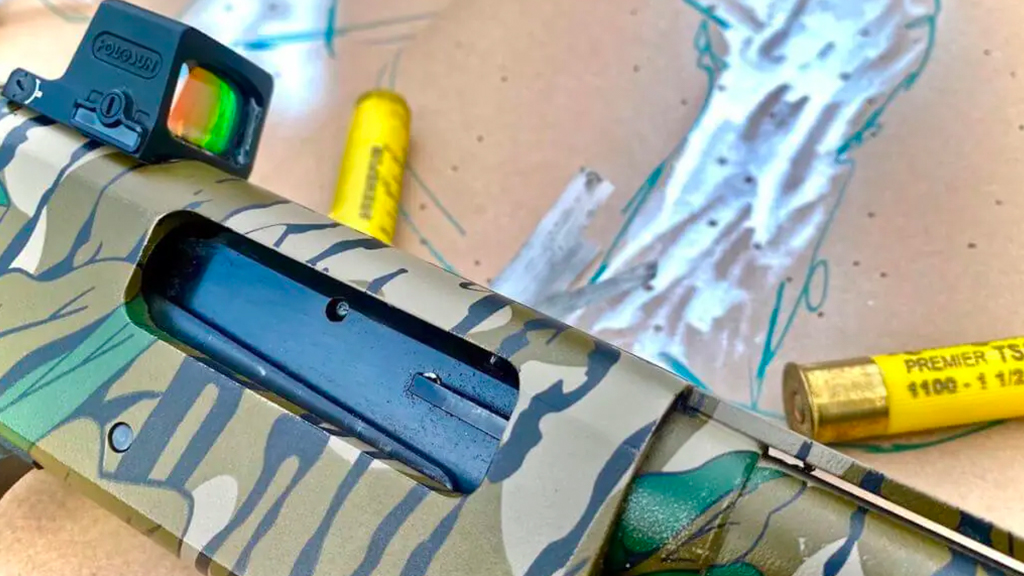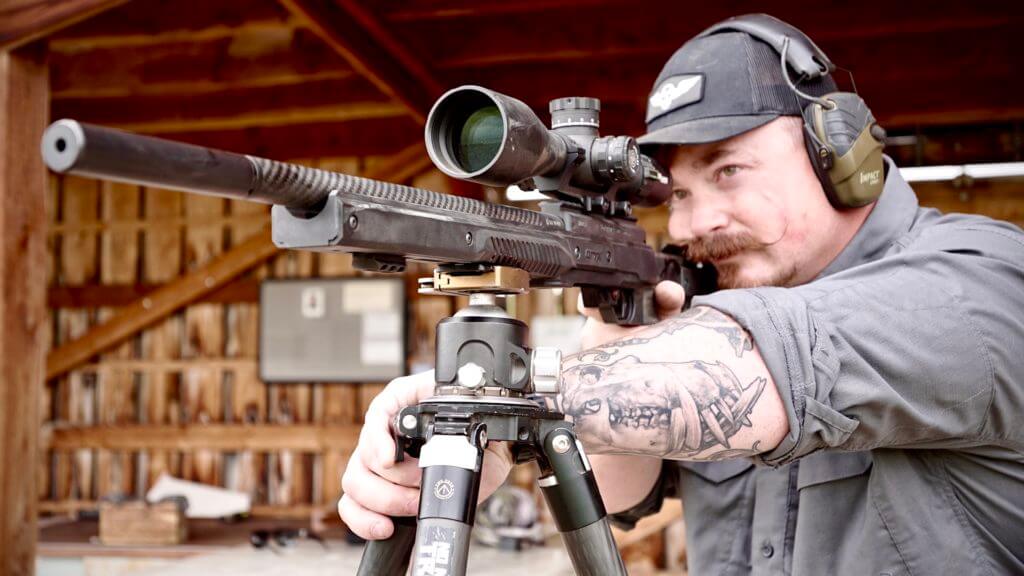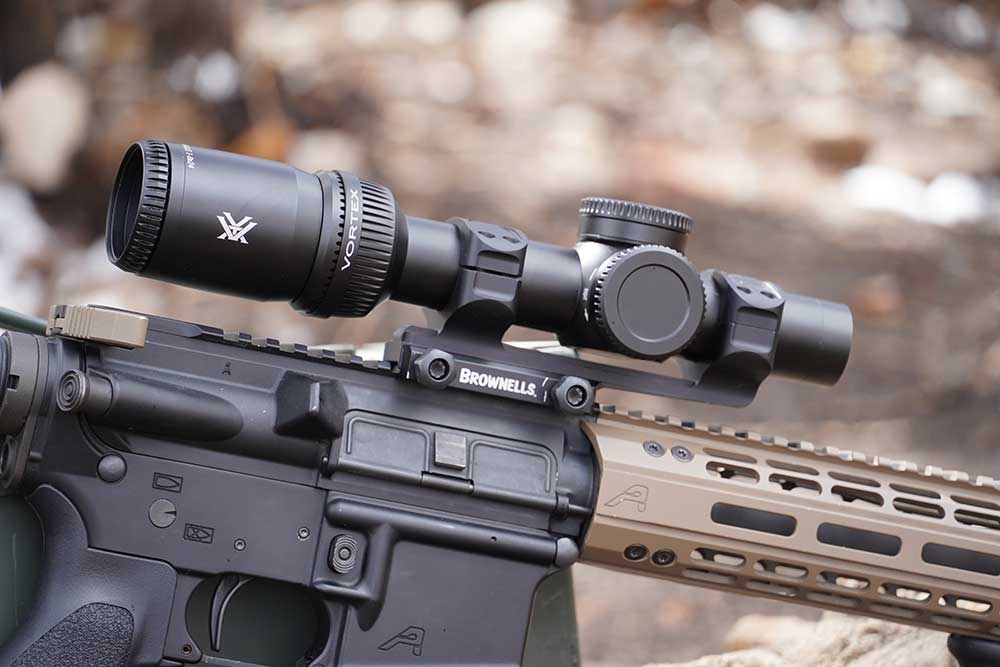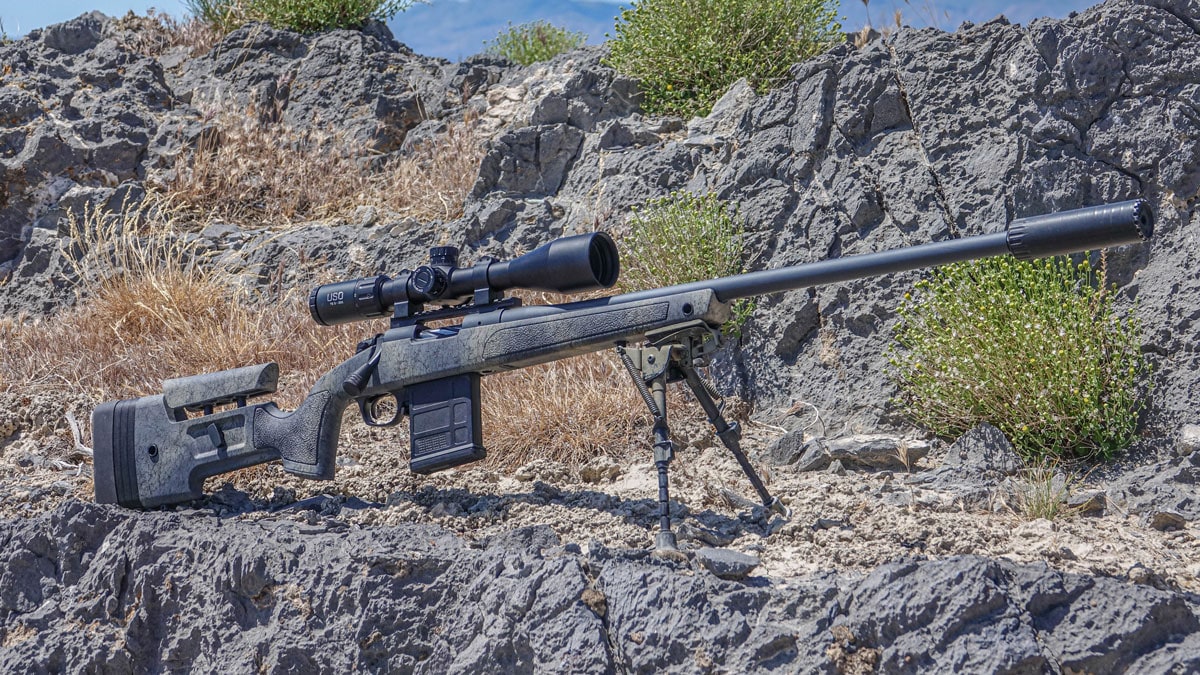TAKE THE SHOT?: Black Death In The Brush
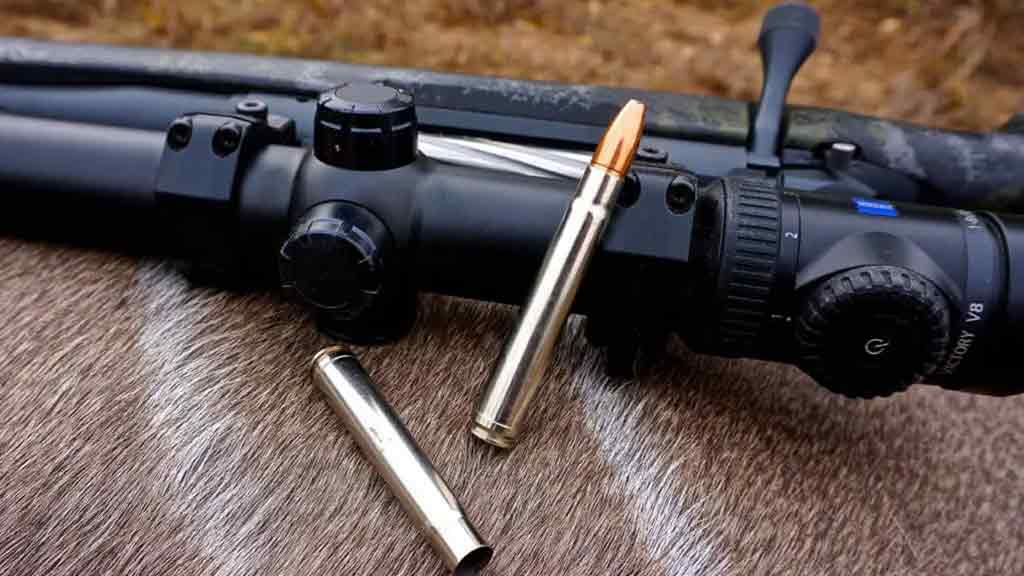
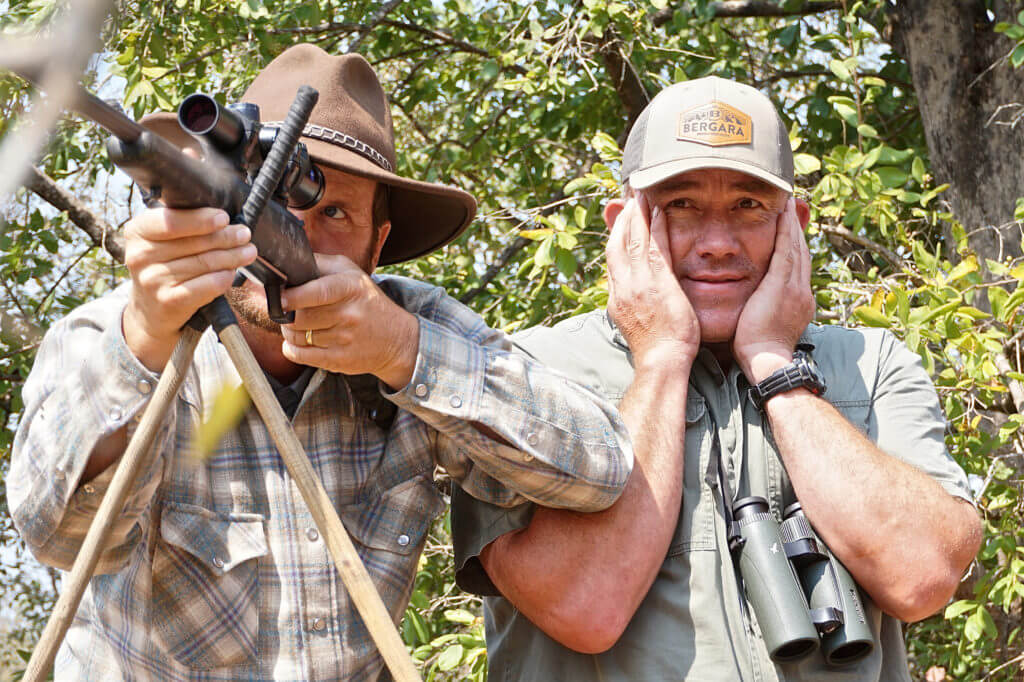
The author has a fleeting shot opportunity through a screen of brush at a big Cape Buffalo. He’s worked hard for this opportunity, and he may not get another. Should he take the shot?
It was late in the afternoon when it happened; the buffalo we’d been tracking for hours suddenly materialized in a brushy patch some 150 yards away. We’d been hunting all day in brush full of nothing, and then suddenly it was full of buffalo – all bulls and all looking huge like dump trucks on a residential city street. One bull in particular stared us down, his head lowered, glaring at us from underneath his massive brows. It’s that bull my PH (Professional Hunter) told me to shoot, setting the quintessential African shooting sticks up for me with a real sense of urgency. I laid my rifle across the sticks and stared back at the buffalo through the scope. There was a medium-thin screen of leaves and twigs obscuring him. My finger found the trigger…
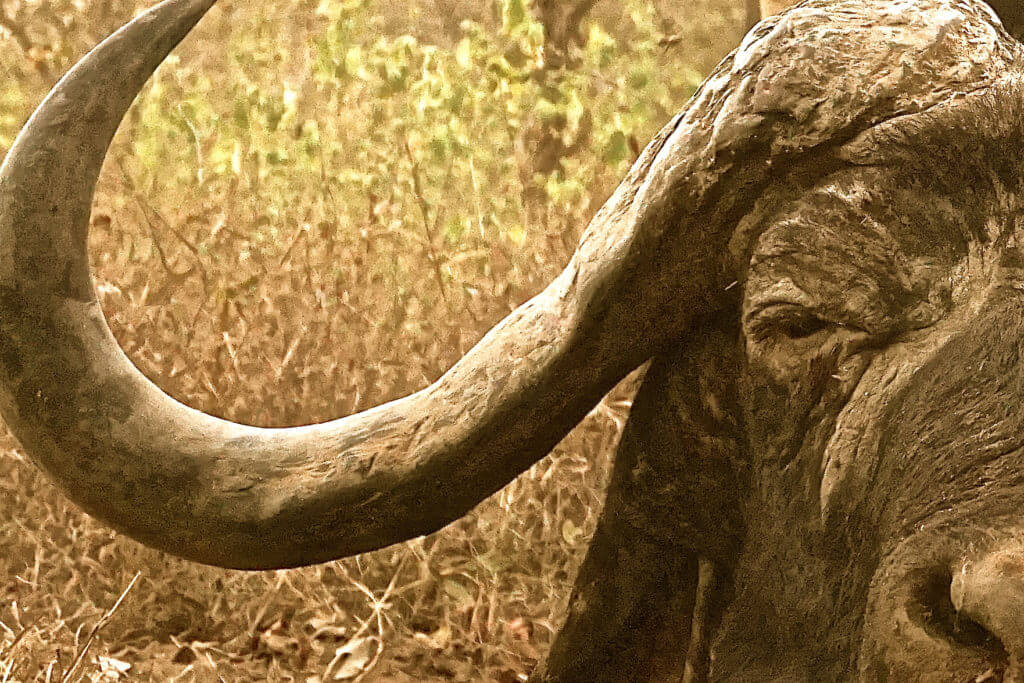
It had taken three big planes and one little one to get me where I was, deep in the wild heart of Mozambique, stalking the Black Death through Sandveldt and Mopane forest. This was real Africa – far from cities, fenced hunting preserves, and any sort of civilization. Our party had already encountered Egyptian cobras, Black mambas, and Puff adders. Elephants roamed everywhere, smashing trees and massive limbs over as they fed, without regard to the two-track roads we must travel. Much of our time was spent clearing the roads ahead. It was the only place I’ve ever hunted where we chambered a round in our heavy rifles upon exiting the truck, and kept it there until we returned. The situation demanded that we be ready to defend ourselves at every turn and without a moment’s notice. It was exhilarating, and I’ll confess without remorse that I’ve never felt the cold fingers of fear wrapped around my heart like I did when within 35 yards of a dozen elephants.
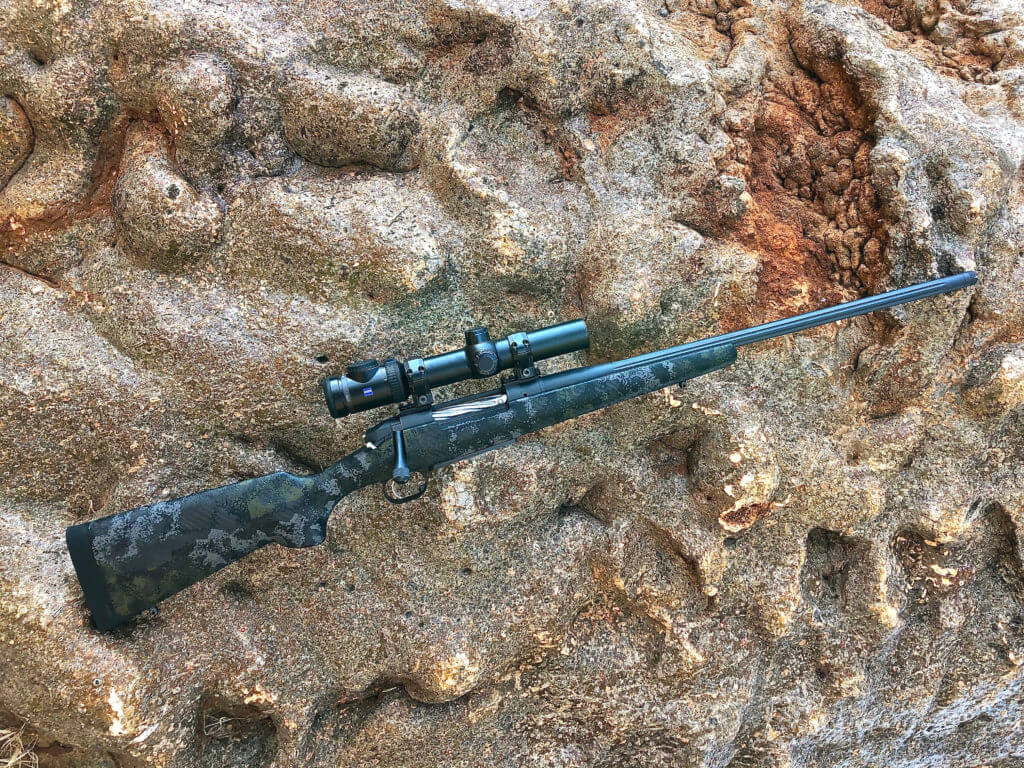
RIFLE, OPTIC, AND AMMO
I received the call late in midsummer; Do you have a current passport, and would you be interested in helping test Bergara’s first dangerous game rifle on Cape buffalo in Mozambique? I thought it over for all of a millisecond before responding – yes to both questions. I admire Bergara rifles and have always wanted to hunt dangerous game in Africa. Sounded like a great combination.
My prototype “Canyon” model rifle arrived in short order, topped with a lovely Zeiss 1-8X24 V8 riflescope. This was during the heat of the Covid frenzy and ammo was difficult to acquire, but I managed to get my hands on a few good options with which to accurately test the .375. I was expecting to be almost unseated by the lightweight rifle when the first shot went off, but surprisingly, the recoil was quite tolerable.
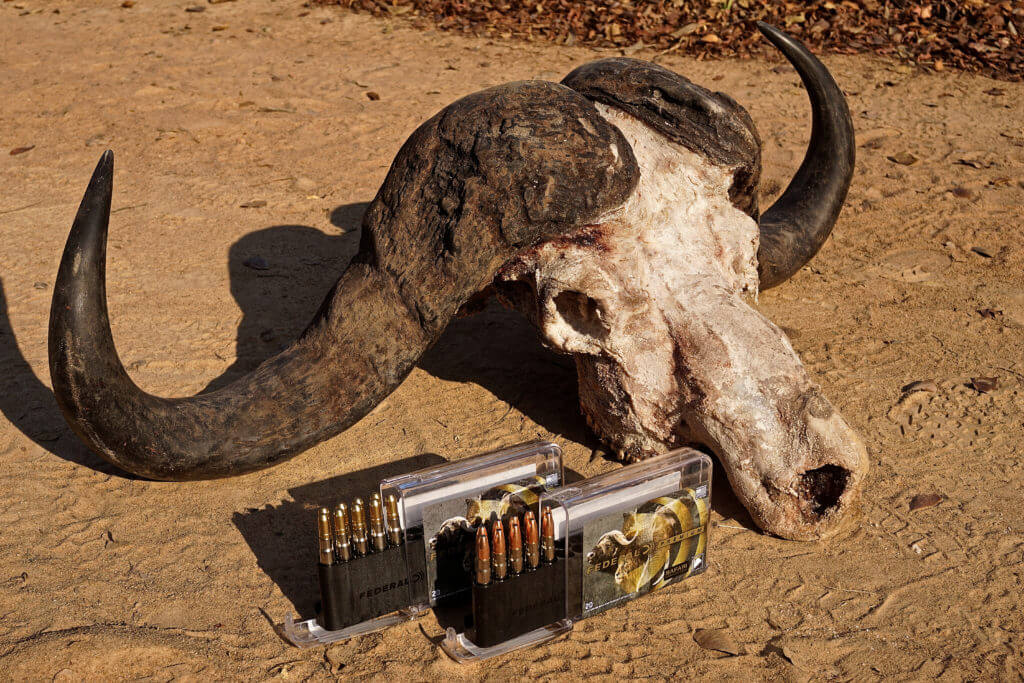
My test rifle sported a 22-inch taper-fluted #4 contour stainless cerakoted barrel, carbon fiber stock, and a perfectly crisp trigger that I adjusted to 2.5 pounds. My testing found that the rifle preferred Federal Premium loads, and since I was directed to come prepared with both solid and soft point bullets I chose to use the Federal Premium Safari Swift A-Frame 300 grain load with a velocity of 2450 fps for my “soft”, and the Trophy Bonded Sledgehammer 300-grain load going 2440 fps for my “solid” load. Both loads shot into the same point of impact at 100 yards and provided 1-moa accuracy.
I was directed to load my rifle with the soft load while tracking and stalking buffalo and to place my shots through the massive shoulder and into the vitals. I was then to switch to solid loads in my rifle for approaching a downed animal or following up on a wounded one. If a wounded buffalo charged, the solid bullet had a better chance of penetrating deep enough to reach the brain or spine and halt the bull before he managed to inflict his revenge. All this solidified what I had already determined before arriving in Africa: don’t shoot at a buffalo unless you’re certain of making an accurate, lethal hit.
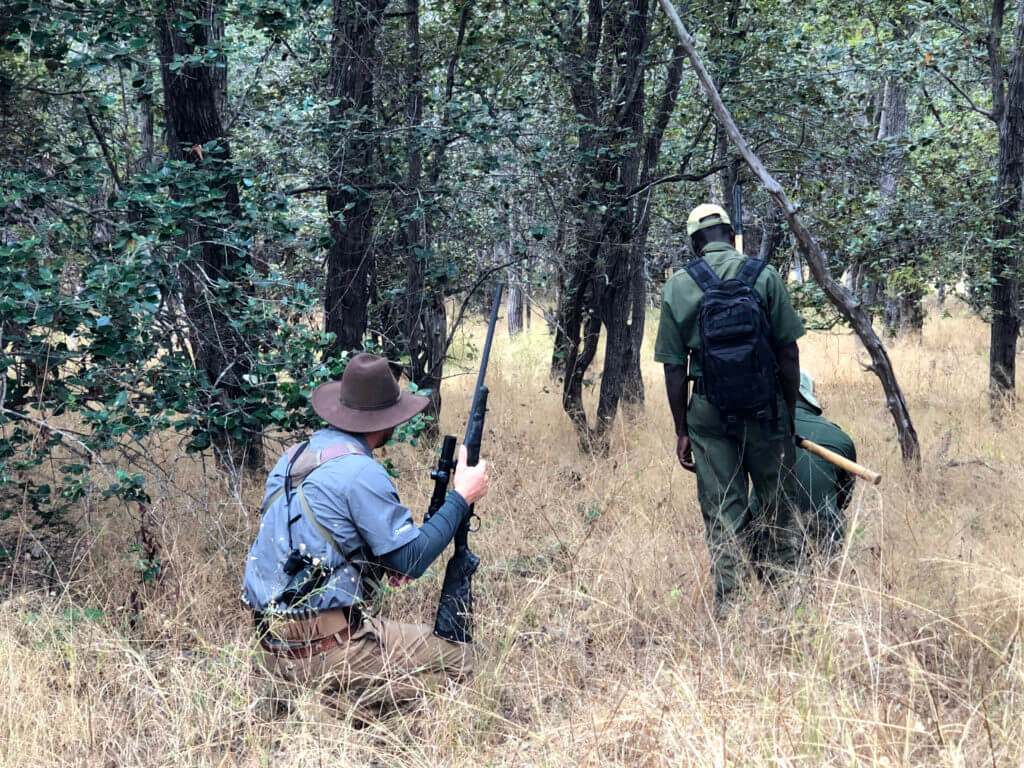
THE HUNT
The first morning in buffalo camp the PHs took us to a range and had us check our zeros. I’d sighted my rifle in at 100 yards, and they had me re-zero at 50, saying that my shot would almost certainly be inside of 100 yards. The rifles all shot well and we were soon off to the veldt in search of buffalo. The next several days proved to me that hunting in this vast thicket would be no cakewalk; if I was to shoot a good bull I was going to have to earn it. That was to my liking; I had two weeks to hunt and relished the thought of all that time spent in the bush. I’ll confess though, it was frustrating to track a herd of buffalo for eight hours and then be spoiled by a vagrant puff of wind, the buffalo thundering away from just 40 yards, still completely out of sight in the thick. This happened repeatedly during the first few days; we’d work hard from daylight to dusk, tracking buffalo and finally spooking them in the incredibly thick vegetation when we caught up.
It was evening of the fourth day, I believe, when we arrived at the point where this story began. We’d been tracking a group of nine or ten bulls all day, and the terrain and brush had finally relented a bit, offering an occasional small opening or meadow. We were looking down the length of one of these when Ian, my PH, spotted the buffalo. They saw us too and rose to their feet. We only had seconds before they would spook and thunder away into the brush, and Ian set the shooting sticks, hissed at me to shoot the broadside bull we could see through the brush, and plugged his ears.
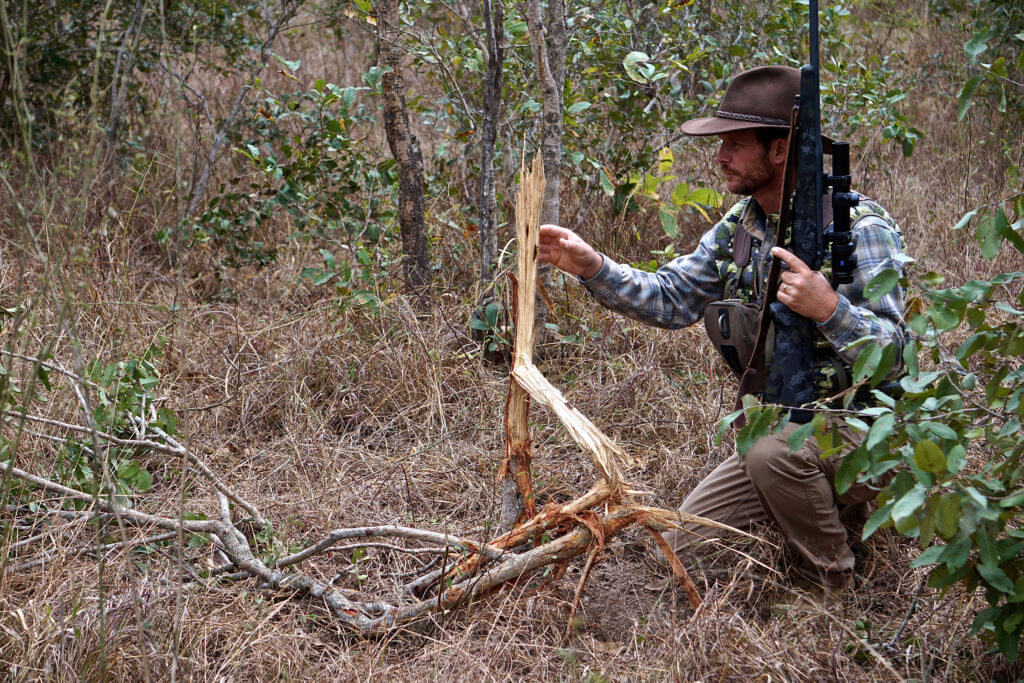
When I looked at the massive bull through my scope I could see his huge horns, drooping and then curving, reaching wide of his tremendous head. I could also see a substantial screen of thin brush around the bull, slightly obscuring the bull and giving him a phantom-like appearance in the late afternoon shadows. I feared that my bullet would deflect or deform on the intervening leaves and twigs and whispered as much to Ian. He said don’t worry, the bullet will get through the brush and kill the bull. Still, I hesitated.
TAKE THE SHOT?
Put yourself in my place: you’ve traveled halfway around the world to pursue a species you’ve always dreamed of hunting. You’ve worked hard to be ready, your rifle is accurate and you’re shooting one of the best big game bullets ever designed for dangerous game. A shot at a big buffalo bull is presented and your guide is urging you to take it, but you are uncomfortable with the shot because of the intervening brush. You’re shooting at one of the most dangerous animals on the planet, from a standing position while resting your rifle over shooting sticks. Everything combines to render a tough shot that you are unsure you will be able to place with precision. Still, the PH should know and he is urging you to press the trigger.
Will you take the shot?
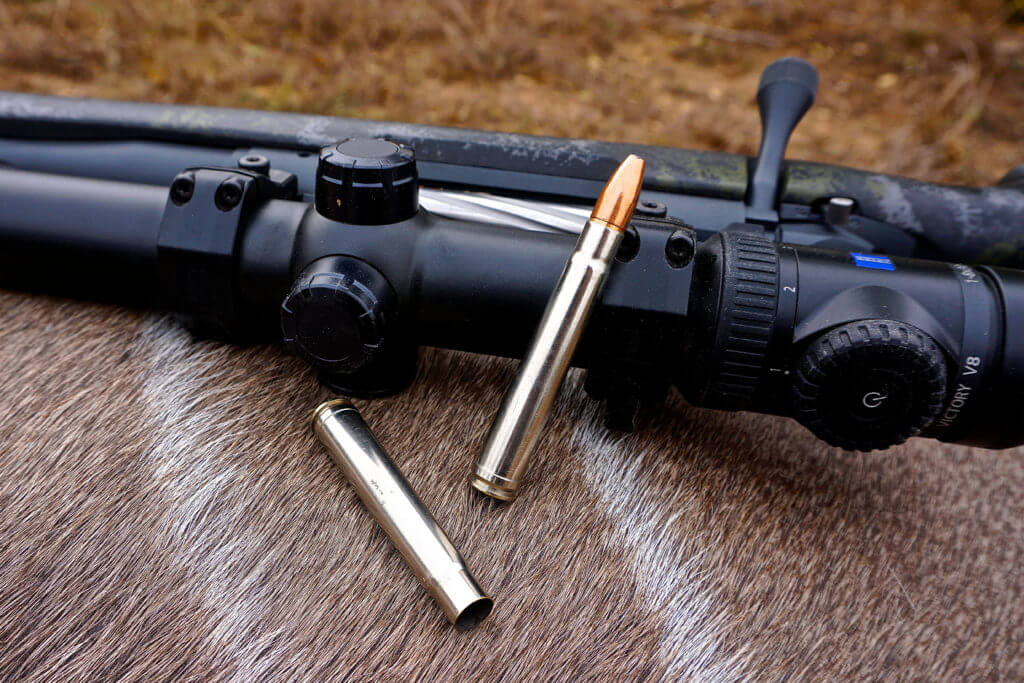
HERE’S WHAT HAPPENED (TRUE STORY)
With a grunt, the bull spun away and was gone, thundering into the dusk with the rest. I had hesitated too long, and Ian was visibly disappointed. I explained to him that I simply hadn’t been comfortable with the shot, and he voiced approval of my restraint. As we took up the trail once more I could sense his frustration, but secretly I was relieved that I hadn’t taken the shot. It hadn’t felt right; I couldn’t see the bull well, and I wasn’t as steady as I wanted to be. I wasn’t ready to end my hunt like that – I wanted to end it with a perfectly placed shot, under conditions that felt right. And that’s what happened. But that’s another story, for another day.
CONCLUSION
This shot was probably doable, for a hunter with experience shooting through brush and at Cape Buffalo. However, it was not an easy shot, nor one free of potential disaster. I personally was uncomfortable taking the shot because of the intervening brush, the fact that I was slightly unsteady over the sticks, and the distance being almost three times farther than my zero. I was serious about making a good first-shot kill, and for me, this opportunity presented too many variables. I’m happy I had the forbearance to hold off. That said, I’m sure there are hunters who could have, and would have, taken and made the shot.
What would you have done? Would you take the shot? I’d love to hear your comments in the section below.

